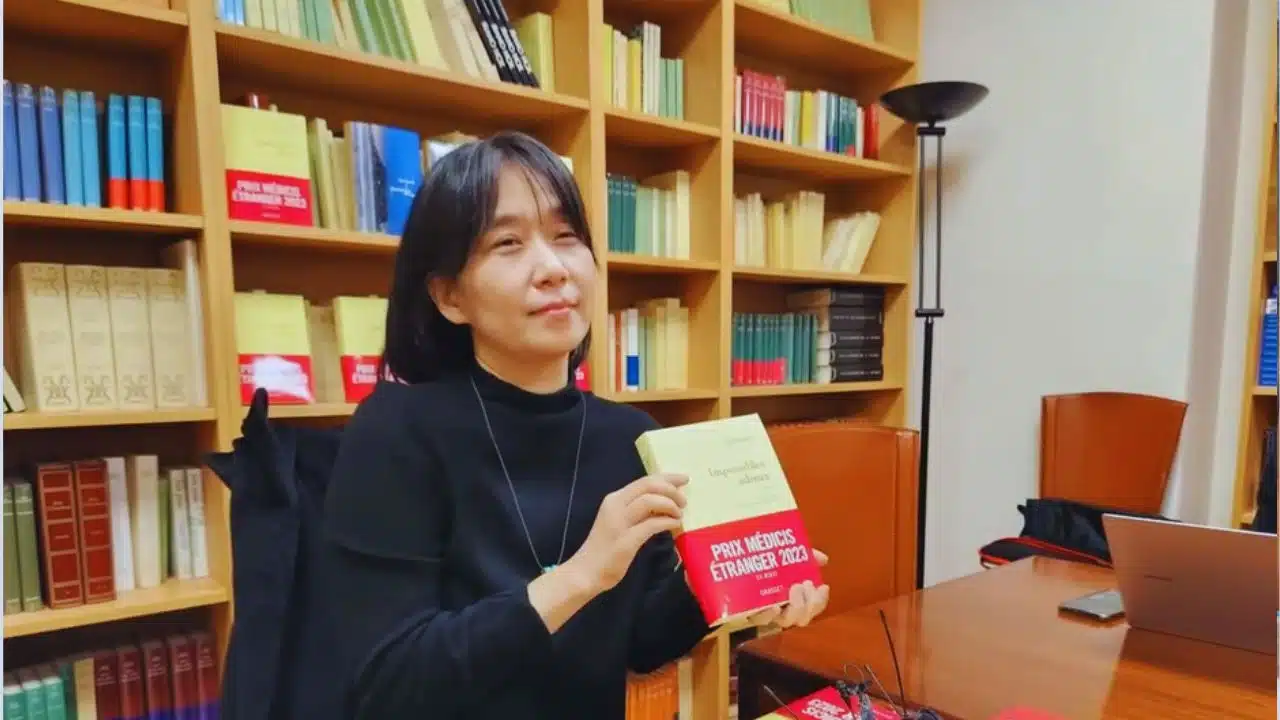The prestigious 2024 Nobel Prize in Literature went to Han Kang, a renowned South Korean author. The Swedish Academy praised her “intense poetic prose that confronts historical traumas and exposes the fragility of human life.
“This honor marks a historic moment, as Kang becomes the first Asian woman to receive the Nobel Prize in Literature, and only the second Korean to win a Nobel prize after former President Kim Dae-jung, who was awarded the Nobel Peace Prize in 2000.
From Critical Acclaim to International Fame
Born in 1971, Han Kang, now 53, has been a significant figure in South Korean literature since her first publication in 1995. She achieved international recognition through her novel The Vegetarian, originally published in Korean in 2007 and later translated into English in 2015.
Like related Read: Nobel Prize 2024 Full Winners List
The novel won the prestigious International Man Booker Prize in 2016, a feat that brought her global acclaim. People celebrate her work for its deep exploration of human isolation, often showcasing female protagonists grappling with the rigid social norms of South Korea.
Han Kang’s narratives are known for confronting challenging themes, such as trauma, personal transformation, and societal constraints. Through her prose, she masterfully delves into the fragility of human existence and the emotional scars left by historical events.
The Vegetarian in particular, with its haunting tale of a woman’s decision to reject societal norms, captivated readers worldwide and highlighted her unique voice in contemporary literature.
The Swedish Academy’s Choice and Its Legacy
Founded in 1786 by Swedish King Gustav III, the Swedish Academy is responsible for selecting Nobel laureates in literature. Comprised of 18 members, known as “De Aderton” (The Eighteen), the academy has historically faced criticism for its overrepresentation of European and North American male authors.
Like related Read: Nobel Prize in Physics 2024
Out of 120 Nobel laureates in literature, only 17 have been women, with Han Kang joining a small but significant group of female Nobel laureates, such as French author Annie Ernaux (2022) and British Tanzanian writer Abdulrazak Gurnah (2021).
This year’s decision to award Han Kang the Nobel Prize in Literature is a notable shift toward greater inclusivity and recognition of diverse voices from non-Western countries. Her works reflect a distinctive cultural perspective, contributing to a broader understanding of the human condition, and further challenging the norms of literary recognition.
Impact on South Korean Literature
Han Kang’s win is a monumental achievement for South Korean literature, which has steadily gained international recognition over the past decades. Her success highlights the growing global interest in South Korean cultural and artistic output, from literature to cinema and music. We anticipate this prestigious accolade to create opportunities for more Korean authors on the global literary stage.
Like related Read: Nobel Prize in Chemistry
In the wake of this honor, Han Kang’s works are likely to attract even more attention, both in South Korea and abroad, inspiring readers and writers alike. By shedding light on historical traumas, personal struggles, and societal expectations, Kang’s writing has paved the way for future generations of writers to address difficult topics in profound and moving ways.
A Legacy of Resilience and Artistic Bravery
Han Kang’s win is not only a recognition of her literary talent but also an acknowledgment of the power of literature to address deep-seated cultural, social, and historical issues. Her work encourages readers to confront the complexities of the human experience, making her a powerful voice in global literature.
Her Nobel win comes after the recognition of Norwegian playwright Jon Fosse (2023), French author Annie Ernaux (2022), and Abdulrazak Gurnah (2021) for their groundbreaking contributions to literature. The choice of Han Kang further demonstrates the Academy’s commitment to honoring authors who bring fresh perspectives and bold narratives to the world stage.
Han Kang’s Nobel Prize win is a historic moment for South Korean literature and a testament to her ability to capture the complexities of the human spirit. Her body of work challenges readers to confront difficult truths and continues to resonate with audiences across the globe. With this prestigious award, Han Kang cements her place among the most influential literary figures of the 21st century.






































